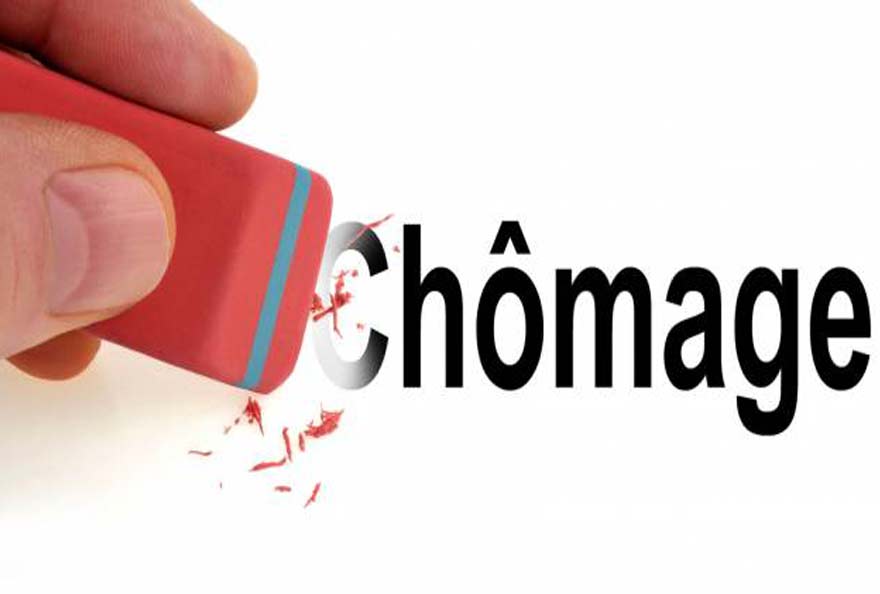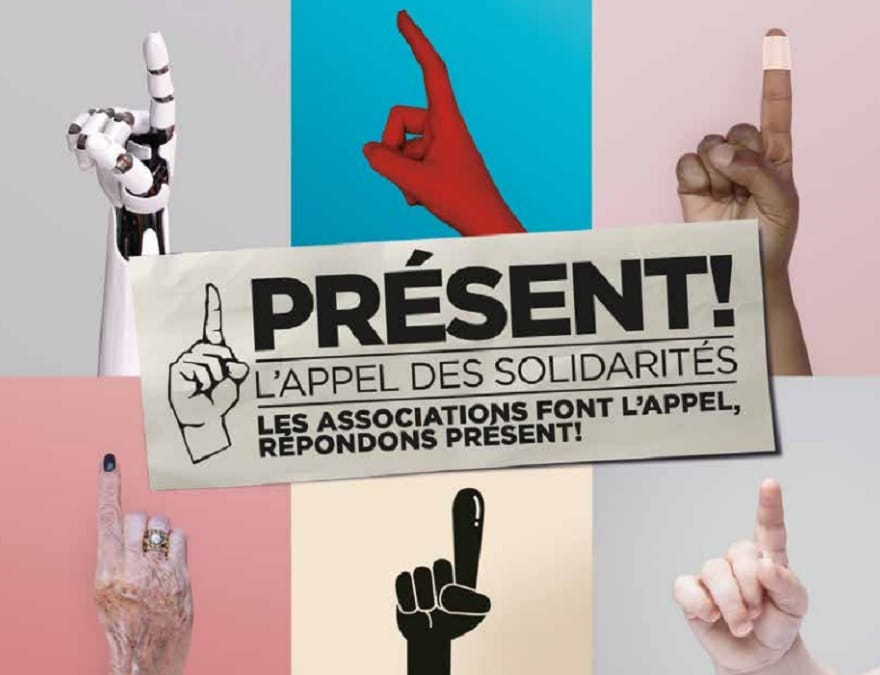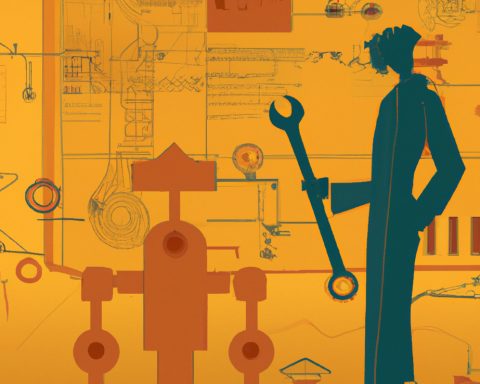An unemployment rate that is stagnating at over 10%, with 2.5 million long-term unemployed. Faced with the ineffectiveness of policies, the ATD Fourth World association proposes another way: to really start from the skills of job seekers, to create activities of general interest, and not from the lists of job vacancies posted by Pôle emploi. All this at no extra cost to the community. How does this great idea come to fruition? What are its limits? Over the next few months, Basta! will be following its experimentation in the town of Colombelles, near Caen. There, a dynamic has been set in motion that is shaking up the way things are done and raising many expectations. Article from Bastamag that UP' has chosen to relay.
Photo: Fotolia
Ifew months ago, Isabelle received a text message from Pôle emploi: the agency invited her to attend a meeting, at the town hall, on a new project to fight unemployment. This former executive assistant, unemployed for more than a year, thinks at first not to go. A little weary in front of a new solicitation. "I had taken part in a training course run by Pôle Emploi, but I had refused the others: they did not correspond to my project and served rather to exclude us temporarily from the unemployment figures. "The 50-year-old decides to go to the meeting anyway, which will disrupt her job search...
This new project is the "Territoires zéro chômeur de longue durée" (Territories with zero long-term unemployment), launched by the ATD Fourth World Association. A new method to fight unemployment, a bit revolutionary. "Let's say it takes things in reverse," suggests Patrick Valentin, the initiator of this idea. Rather than starting from existing job offers and finding the corresponding workforce, the project proposes to identify the needs and shortages, as well as the skills and desires of unemployed people. And tries to bring new services to the population through the development of new activities.
So much for the idea. In practice, ten territories have been selected to experiment with the method. Colombelles, in the suburbs of Caen (Normandy) is one of the lucky ones. The town of 6280 inhabitants has the highest unemployment rate in the Caen conurbation (about 18 % of its working population). Until 1993, the Société métallurgique de Normandie, based on its territory, was a real lung of activity. But the furnaces closed down and high-tech startups replaced them, at the foot of the old factory. These skilled jobs do not prevent Colombelles from having around 700 job seekers, 250 of whom are long-term workers. Few diplomas, little mobility. People who are losing confidence in themselves and in the future.
Everything has to come out of them. First step of the project: invite unemployed people to think about the needs of their living territory. "Not only do people have to tell us what work they would be best suited for, but also what activities would be good for the community," explains Pascal Gourdeau of Ardes, who is involved in the project's management. One of them is developing the town woods, creating an educational trail, tree climbing. Another could create an info-health point to direct people to the right structures. A third is considering driving a solidarity taxi, which would increase the mobility of the inhabitants for a modest price. A last one would visit dependent elderly people, to spend time with them, discuss, play cards, and thus fight against loneliness.
Ludovic Provost knows a number of them. He regularly welcomes them to the Employment Unit in Colombelles, accompanies them in their procedures, helps them write their CVs or cover letters. He also works on self-confidence. Next to the front door of his office are postcards on the old-fashioned jobs that used to populate the Normandy countryside. Coalman, gillnetter, ragpicker. What are those of tomorrow? "In the interviews, we start from their desires and their motivation. We explore their ideas with them and confront them with reality," explains the integration counsellor who has been involved in the Territoires zéro chômeurs project for several months.
The reality is, first of all, whether the work or service already exists in the territory. If a company proposes it, the idea is abandoned. There is no question of competing with an already existing activity. The jobs must then be mainly non-marketable, or not very solvent: if financial compensation is requested from the public benefiting from this activity, it must be very small.
But the reality that jobseekers have to face is also to make sure that the different projects are coherent, and to provide adequate training. One of the people wants to develop the city's woods," says Ludovic Provost. She has the skills to do it, but once the development is done, it will be necessary to animate this path. And there, it is necessary to be trained in animation, to have a Bafa. "However, there's no question of leaving a person on the tile. In concrete terms, volunteers are recruited by right," says Patrick Valentin, the initiator of the project at ATD Fourth World. They are not selected. But we see with them, in a job, what they want to do, what they know how to do. "A small revolution.
All of these long-term unemployed will be employed, on permanent contracts, in a "company with the aim of employment". This company will group together all the micro-activities identified upstream, and will take care of the administrative procedures and accounting. The structure will also provide services to outside companies. This is the project's second source of activities: to convince local businesses to try out new activities. In Colombelles, a food-processing company would create a post of culture broth grower. A start-up would need application testers for mobile terminals. Job seekers and project leaders meet directly with companies to imagine these jobs," explains Pascal Gourdeau, who is leading the project. It's not always comfortable to be in front of a boss. It stirs up the job seeker's guts. But it's formative and it helps them regain their confidence. »
For the partner companies, entering the project is a financial advantage. The positions are financed at 70 % by the employment company created by the project Territoires zéro chômeur de longue durée. For a job that costs between 26 and 27,000 euros per year, the partner company only has to find 8 to 10,000 euros. A small financial effort to create a job opportunity. A vigilance committee (made up of trade unions, local authorities and volunteers) examines the possibilities of jobs established with local companies. When the town's supermarket offered a job unloading trucks, the committee vetoed it: the activity could very well have been developed without the help of the project. And the supermarket may not necessarily need the help to secure this job. We are still looking for ideas with the supermarket," says Ludovic Provost. Conversely, associations may lack the funding to develop this or that activity. The scheme can help them. »
In short: developed activities that are not necessarily solvent; services at low cost for partner companies; but permanent contracts for all volunteers! How to finance the scheme? Here again, ATD Fourth World has chosen to "take things in reverse". The cost of job deprivation is estimated at 36 billion euros by the association (see diagram below). By reallocating the costs and shortfalls of this job deprivation, approximately 70 % of the cost of a full-time position, at the minimum wage, can be paid. To finance the experimental phase, a fund was created by the State in the summer of 2016. The principle is that the State and voluntary local authorities transfer social benefits such as the RSA to finance new jobs, rather than to make up for the shortage of jobs.
This leaves 30 % of the item to be financed. This is where the services sold to companies (application tests or growing broth, for example) and the solvent activities offered on the territory come into play. The Colombelle solidarity taxi, for example, can apply very modest and progressive fares, depending on the customers: individuals, associations, companies. "Basically, people have abilities, there is no lack of work, and there is money that is used to help those people who do not have a job. We would do better to use this money to create jobs," says Patrick Valentin. We want to demonstrate that once this job shortage is eliminated, not only does it not cost the community more, but it is economically beneficial. »
The challenge is great, the project in full deployment. In Colombelles, the approach is generating enthusiasm among some participants, who are becoming actors in the construction of the "company with the aim of employment". With this project, I have met many people in different fields," explains Gwladys, 24, who has been looking for work for almost a year. We attended the meetings, conducted the survey on the needs of the territory, met the companies... Before we knew if it was going to be financed, it was going to see the light of day! But it opens up new perspectives. "Ludovic Provost, from the employment unit, sees a new dynamic: "For people who commit themselves, there is a permanent contract at the end of the day. It's not: if you do this training, you might find a job. No, the position will be created. In people's minds, it changes everything! »
"How's the project coming along? "asks a man who enters his office during our interview. "A lot of people regularly ask me for news," explains the placement counsellor. Others have disappeared since the first meeting: some don't believe it, about fifteen have found a job. "Is this a positive effect of the project? asks Ludovic Provost. When there is support like the one we offer, it helps people believe that they can find a job. I think they don't present themselves in the same way afterwards, during a job interview for example. »
A total of 2,000 jobs could be created in five years in the ten territories conducting the experiment. "It will be a success if we manage to eliminate the shortage of jobs and observe the well-being of the population," Patrick Valentin repeats. For this man, who has lived among the "poorest", "the people who apply for jobs have much more skills to say what they know how to do than what people think. If you select them, you exclude them". But the change in logic is not necessarily obvious: "We are contaminated by the ordinary logic of selection, mistrust and control. We propose to be in a logic of trust. Let's do the useful things, and if there's a problem, we'll deal with it then. »
What will it be like in Colombelles? The employment company should be created next April. The first employees will launch their activities right afterwards. Gwladys could become the switchboard operator secretary of the new structure. And Isabelle, executive assistant. "It's hard to be a long-term job seeker, she points out. You're cut off from work, you have little social life, your budget is tight. When you're offered a super innovative project like this one, it allows you first of all to be around people again, to get out of your home, and then eventually to get a job. In a way, it's a way of regaining some kind of dignity. And that's priceless. If I have a job, I am part of society. »
Simon Gouin – Bastamag.net
Login
0 Comments
Inline Feedbacks
View all comments












